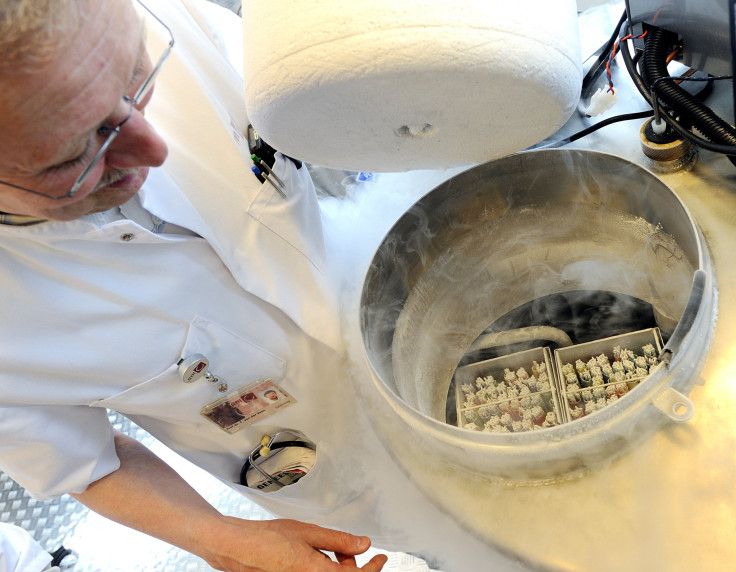Malfunction At Freezing Facility Could Have Damaged Thousands Of Frozen Eggs, Embryos

More than two thousand eggs and embryos stored at a fertility clinic in Cleveland, Ohio, may be in danger due to temperature fluctuation. University Hospitals (UH) officials made the announcement Thursday, adding an investigation is underway.
More than 500 families could be affected as a result of the major malfunction linked to the long-term storage tank containing liquid nitrogen at the University Hospitals Fertility Center in Cleveland. The equipment reportedly failed last month due to which the temperature inside the refrigerator storing the eggs became warmer than it should.
Patti DePompei, president of UH MacDonald Women's Hospital and UH Rainbow Babies & Children's Hospital, told NBC News this malfunction may have caused damage to many of the eggs and embryos — some of which have been stored for decades.
"We don't know the reasons why yet," DePompei said. "But we do know that the temperature that was measured at a portion of the tank was higher than our acceptable limits. …Obviously the situation that occurred here is devastating for the families involved, and it's devastating for our physicians and our nurses and our staff as well."
University Hospitals issued a statement saying independent experts are being consulted to determine the cause of the malfunction.
"Right now, our patients come first. We are incredibly sorry this happened. We are committed to getting answers and working with patients individually to address their concerns. We have already initiated contact with all of our patients to inform them and respond to their questions, and set up a designated call center to arrange personal meetings or calls with their physicians," UH said in the statement.
What is egg freezing process and how does it work?
In the egg-freezing process, the ovaries are stimulated with hormones to produce multiple eggs. These eggs are retrieved from the ovaries and taken to a laboratory where they are cooled to subzero temperatures in a liquid nitrogen tank. Sometimes eggs are stored in such process for decades. The cryogenic facilities where the eggs are stored are typically monitored with video surveillance and alarm systems.
The recent incident has caused concern for University Hospitals, which has reached out to patients to learn if the eggs and embryos are still viable. This is possible by thawing and implanting the eggs before confirming any damage.
According to reports, the hospital said it will not destroy any of the eggs or embryos. It has also moved the eggs and embryos to a working tank.
"We are working very very carefully to determine how we can best support them through the process," DePompei said, while saying it was unclear whether fertility procedure fees for the affected patients will be waived. The cost of the procedure range from at least $12,000 to $14,000.
"Our hearts go out to the patients who have suffered this loss," Sean Tipton, chief policy officer at the American Society for Reproductive Medicine (ARSM) reportedly said. "We will work with our member clinics to help them take any steps needed to ensure such an event never happens again."
The process has become cheaper and increasing popular among young women wanting to preserve their fertility. According to the latest figures from the ARSM, more than 6,200 women froze their eggs in 2015.
© Copyright IBTimes 2024. All rights reserved.





















